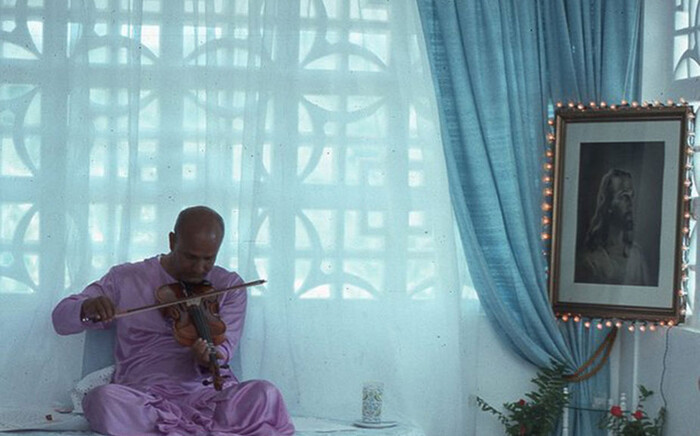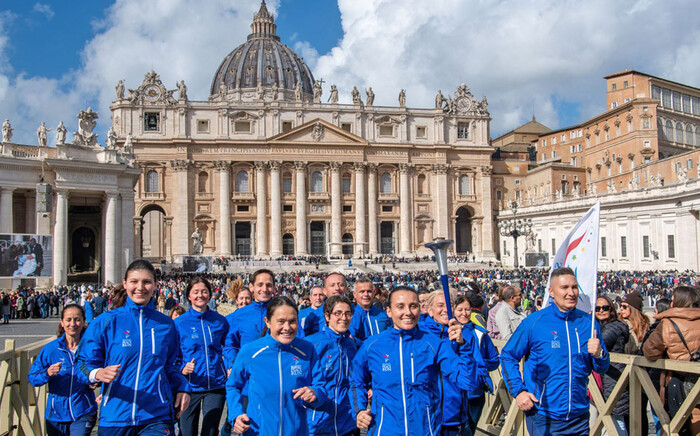
Inspiration-Letters 14
Grace Edition
Grace!

What a hard topic to write about! That’s because Grace is fundamental to our lives. In Sri Chinmoy’s most important spiritual song, the Invocation, he addresses the Supreme Being, saying, “I am Thy glowing Grace.”
In other words, we are God’s first and greatest gift to ourselves. It’s an almost incredible, insoluble mystery.
Perhaps Grace and gratitude go together. When I think of what Sri Chinmoy has done for me, I feel an upsurge of gratitude in my being. I used to suffer from chronic nightmares, but now I sleep fine. Sri Chinmoy cured me of a persistent, nervous breathing problem. He gave me the chance to practice the spiritual life, while emphasizing the importance of accepting and remaining in the outer world.
In other words, I’ve made more inner and outer progress by studying with my Teacher than I ever expected, especially in such a short time.
I miss my Guru deeply. But when I think of the love and kindness he lavished on me, my pain fades away. I realize that as long as there are people on earth who, like me, were changed and inspired by Sri Chinmoy, that my Master will never die.
“I am an eternal journey”, so Sri Chinmoy wrote in a book which he handed out the night before his earthly departure.
I know that the word ‘journey’ comes from the French word ‘jour’ and it refers to a day’s trip. I like the idea of ‘journey’ being associated with ‘day’. A trip, a journey, a quest for Light.
The last poem in Sri Chinmoy’s concise but profound book “The Supreme and His Four Children: Five Spiritual Dictionaries”, published in 1973 reads:
Except for the Supreme and His Light, We are all chattering monkeys, braying donkeys and roaring lions in the cosmic zoo. — Sri Chinmoy
When I told one of the writers that ‘Grace’ would be the theme of this particular installment of Inspiration-Letters, his face lit up.
“Grace! The secret to the spiritual life!” he exclaimed.
I feel that he is right. No matter how brave, how industrious, and how well-intentioned we are, we need Grace to really surmount the obstacles in our lives. But this doesn’t mean that courage, hard work and kindness aren’t necessary! Not at all! I’m just saying that we might be able to find more joy and happiness if we can feel that we are God’s instruments. I know it’s an old message: Let go and let God, Be a Mere Instrument, Let Thy Will be Done. But it’s a sweet message, it’s a powerful message, and it’s one that I often need to hear.
I really like the word Grace. It is one of those English words that has a mantric power, in my view.
When I think of Grace, I think of a sweet Mormon girl by that name from my high school, who gave me a copy of the Book of Mormon along with a detailed note explaining how that book changed her life. I did not become a Mormon, but I never forgot her gift, as it was the first time anyone had taken a sincere interest in my spiritual life.
When I think of Grace, I think of the late string quartets of Beethoven, written when he was almost completely deaf and in failing health. They show Beethoven at his most personal and vulnerable. The fact that he had the courage to expose his soul to the world like that is remarkable.
When I think of Grace, I am reminded of the first time I saw Sri Chinmoy’s face, on the back cover of Beyond Within, that unique treasury of spiritual wisdom. His features captured my imagination and my respect immediately, as they radiated calm confidence, kindness and absolute certainty. I was a teenager then, and had never encountered anyone who radiated those qualities so clearly.
I’d like to close with a poem from Beyond Within, which expresses in just a few lines what I cannot express in hundreds of pages:
The Miracle Maker— Sri ChinmoyHis is the life of a miracle-maker. He started with himself. Himself he loved, Himself he caught, Himself he taught. He has started teaching. Nobody passes through him unchanged. His life is a constant movement Upward and inward. Doctrine he has none. His heavenly beauty and God Live under the same roof. His earthly duty and God Live in the same room.
I am very happy to welcome you to our ‘Grace’ issue of Inspiration-Letters.
Sincerely,
Mahiruha Klein EditorTitle photograph: Abedan at Sri Chinmoy Centre Gallery
Pennies from Heaven or The Coin of Grace
 Manhattan rushes to the beat of a drumming crowd with traffic choir crescendo. It dreams in skyscrapers. Manhattan is a bright and shiny penny. This roundness mimics the shape of the whole world since it speaks the language of every nationality. The neon lights of 42nd Street reflect in its copper face. A shiny penny you can pocket with your dreams and your destiny desires.
Manhattan rushes to the beat of a drumming crowd with traffic choir crescendo. It dreams in skyscrapers. Manhattan is a bright and shiny penny. This roundness mimics the shape of the whole world since it speaks the language of every nationality. The neon lights of 42nd Street reflect in its copper face. A shiny penny you can pocket with your dreams and your destiny desires.
One night in the 1990s, I found a different kind of penny in Manhattan — a penny from Heaven that brought a currency of grace — unearned, undeserved — God hid the coin of grace inside the hem of my life and placed it in my pocket one evening as I traversed the streets of Manhattan.
Saturday night journey — subway sway from Queens to Manhattan. Hunting for the IMAX theater. Whisking through the blocks, breathless from being slightly lost, street corner check, intuition and a dash of prayer to invoke arrival success in time for the showing of “Mission to Mir”.
As I sought the location of the IMAX theater, Manhattan’s weekend evening riches beckoned in an infinite array of dazzle. At the same time the city was also as down-to-earth as a lucky penny on the sidewalk. No wonder New York City’s heart seems to beat inside the chest of the very world.
Walking down the street intent on reaching the destination, I passed a charming sight of a man pushing a child in a baby carriage. Instead of taking it in as the latest typical family portrait, I spontaneously blurted out silently inside myself, “bondage, all bondage.” (I do like children, honest!) As I crossed through Manhattan, the penny’s worldly dream tarnished and in journeying across an illusion, my life had turned a page by the time I found the theater along with my companions.
Why that night? Why that trek through Manhattan? Why was that night different than every other night so to speak? Maybe the city needed yet one more bright light when grace kindled a new flame of spiritual longing and aspiration deep inside me while I sought the movie theater address. Each step intensified the dichotomy. Around me on the streets danced the everyday, the ordinary world and within a revelation and epiphany of God longing as the rightful central ordinary, the rightful everyday.
Inside the theater, my spiritual teacher Sri Chinmoy and more of his students were proceeding to their seats to watch “Mission to Mir” a movie about a joint venture between Russian and American astronauts showing on the giant IMAX screen. I pinched myself as my own heart soared to the farthest stratosphere without any rocket power. As if a gauzy film had been removed from interior being, I sat in awe and rejoicing at a God-longing flame climbing inside my being. I stared and stared at Sri Chinmoy because I knew this grace gift flowed from him, my dear spiritual guru.
Certain concerns haunted me over the embarrassingly long number of years since I embarked on a conscious spiritual journey. I went through the motions but it seemed my sadhana too often lacked a sincere and spontaneous conviction. I sensed something was missing but did not know how to summon utmost sincerity from its hiding place. I figured that if I knew how to rectify it, I wouldn’t be in the situation in the first place. Therefore, I waited and wondered when aspiration yearning would dawn in my life with more constancy. Without knowing, I awaited the arrival of the coin of grace.
In the streets of Manhattan, years after I had almost given up on the day my spiritual disciplines would resonate with more authenticity and less rote duty, grace finally rained down on my life like pennies from Heaven. Manhattan is a bright shiny penny that reflects worldly dreams but God took a shining coin of grace instead and made me a spiritual millionaire while finding my way through the streets of Manhattan.
Long years of puzzlement and waiting abated that fateful night. Human effort carried me only so far. Grace alone birthed the first true skyscraper of aspiration longing in the depths of my theretofore struggling heart. God moved the coin of grace from its hidden spot right into my pocket and the sky showered pennies from Heaven. The Grace of God alone led the way through the big city and on into the paradise promise of spiritually sincere longing.
“Grace, O divine Grace, Grace, O supreme Grace, I am drawing heavily And constantly upon You. Without You I am sleeplessly Bankrupt.” — Sri Chinmoy Ten Thousand Flower-Flames, Part 33
Sharani Robins Rhode Island, USA
Lessons from Laetitia
 My mother always called her Laetitia. I think that among the rest of octogenarian society in Mosgiel she was known as Lettie, but Mother, who long praised the knowledge of ‘Latin roots’ and was always an advocate of doing the right thing, preferred to use her full name. (The relevant Latin root is ‘laeta’. Laetitia was one of the lesser Roman goddesses — goddess of joy, gaiety and celebration, linked especially with holidays and celebrations, her name meaning delight, happiness, joy — from the root ‘laeta’ meaning happy.)
My mother always called her Laetitia. I think that among the rest of octogenarian society in Mosgiel she was known as Lettie, but Mother, who long praised the knowledge of ‘Latin roots’ and was always an advocate of doing the right thing, preferred to use her full name. (The relevant Latin root is ‘laeta’. Laetitia was one of the lesser Roman goddesses — goddess of joy, gaiety and celebration, linked especially with holidays and celebrations, her name meaning delight, happiness, joy — from the root ‘laeta’ meaning happy.)
It was a name that for me conjured up visions of the Victorian age — not so much a goddess of gaiety as a tight-laced matron in a crinoline. In fact I think the only time I had come across the name before was when I performed at school in a production of Oscar Wilde’s ‘The Importance of Being Earnest’. In that final scene where all the respective couples are recognising each other, Dr Chasuble exclaims, ‘Laetitia!’. ‘Frederick! At last!’ Miss Prism replies.
Earlier in the play — Dr Chasuble: But I must not disturb Egeria and her pupil any longer. Miss Prism: Egeria? My name is Laetitia, Doctor. Dr Chasuble: [Bowing.] A classical allusion merely, drawn from the Pagan authors. I shall see you both no doubt at Evensong? Miss Prism: I think, dear Doctor, I will have a stroll with you. I find I have a headache after all, and a walk might do it good. Dr Chasuble: With pleasure, Miss Prism, with pleasure. We might go as far as the schools and back. Miss Prism: That would be delightful. Cecily, you will read your Political Economy in my absence. The chapter on the Fall of the Rupee you may omit. It is somewhat too sensational. Even these metallic problems have their melodramatic side.
My mother’s friend Laetitia is not however some Victorian spinster, stuffy and restrained. On those occasions when I make pilgrimage south to visit my parents she will clasp me to her ample bosom in welcome and has always a kind word, always a friendly smile, always some thoughtful insight to offer to all.
She is a widow. (How blithely we slide over that word as if it were describing a simple and ignorable fact and not rather a vast trauma.) For years she has lived alone in the little flat on the corner of Laing Street and Gordon Road. When my parents walked home from Mass she would walk with them that far — Mum arm-in-arm with Dad, unsteady since she had gone blind in one eye, and Laetitia would take Mum’s other arm, the three of them arm-in-arm across the footpath.
My mother was a friendly person but her regard for Laetitia went further than a casual friendship. I think she respected Laetitia. She respected her vision of the world. An indicator of that respect was that Mum took to using herself that word which summed up the way Laetitia views the world. There are situations where people say ‘it was lucky that . . .’, ‘we were fortunate that . . .’. Laetitia, and then my mother, and indeed later I myself, would correct them — ‘No. We were not lucky or fortunate — we were blessed.’
All that is good and positive in life, Laetitia recognises not as good fortune, not as positive coincidence, not as luck, not just as something to be pleased about, but as a blessing. She sees these things as the gratuitous gifts of a beneficent God, the blessingful outpouring of grace. And once you have begun to view the world thus, you come to see that blessing everywhere
When my mother died, Laetitia, ever concernful: ‘It may not seem it, but it was a blessing the way that she went.’
The more we adopt Laetitia’s view of the world, the more we come to realise that in the smallest things as well as in the largest events of our lives we can discern the grace of God ever offered to us. God’s vast and eternal love for us we experience as His grace always proffered in myriad ways.
At the time of his own death, not long before my mother’s, Sri Chinmoy was writing a collection of 77,000 short poems which he called ‘Seventy-Seven Thousand Service-Trees’. If we pick up Volume 30, published in 2002, we can read poem 29,061:
“From the little things That God does for us, We can clearly see and feel How much Love He has for us.” — Sri Chinmoy (unnoficial)
Indeed, indeed. God’s Grace: it falls as gently upon us as rain over Beirut; it rests as lightly upon the tongue as the lightest fragment of bread; it bubbles up unseen like the smallest spring of water among moss and rock and tiny, white flowers.
We are blessed.
Barney Mc Bryde Auckland, New Zealand
Learning to Live
 I met my second nephew for the first time last week, eight days after his arrival on earth (that’s me on the right, at a similar age). His expressions changed fast, as if dreaming. What could he dream so soon? Memories of other worlds or other lives perhaps. I wondered what his dreams would be in later life, hoped we would be friends, collect beetles in a jar, laugh together over a late lemonade in his grandmother’s garden.
I met my second nephew for the first time last week, eight days after his arrival on earth (that’s me on the right, at a similar age). His expressions changed fast, as if dreaming. What could he dream so soon? Memories of other worlds or other lives perhaps. I wondered what his dreams would be in later life, hoped we would be friends, collect beetles in a jar, laugh together over a late lemonade in his grandmother’s garden.
He is huge for a newborn, with hot fists and a determined frown, but I was a little afraid for him. It seems brave to me to be born at all, to be human, to live on earth.
Despite its intensity, nobody remembers being born. Everyone uses their first breath to cry. Raw sound, cold, movement, pain, exhaustion, separation from the source, are too much to bear at once. There is no strength of one’s own to call upon, and nothing certain or familiar on which to depend. Julius Caeser, Abraham Lincoln, Albert Einstein, Muhammad Ali, however mighty they became, each arrived naked and alone, and cried.
My primal bewilderment stayed with me longer than theirs, and perhaps longer than most. The cry silenced but was always there. Life was a fast road and the human vehicle seemed so brittle on it. I saw pain in others and felt it as my own. I grew no armour in my thoughts or senses.
I was a morbid child, my first dream in colour was of death. I lay awake in fear of everything, craving the release of sleep, but dreading my own dreams more than waking life. “Empty your mind,” said my mother, “think beautiful things or have no thought at all.”
So I made my first tiny flame of peace inside. It lit my world a little in that strange perpetual night; spilled into the darkness so at odds with my safe and gentle circumstances.
I worried about life and the end of it, about the world and myself in it, about being small and about growing up. I worried that God had forgotten me on earth. That’s the strangest thing: I was raised an atheist but always secretly believed in God, that there was more to life than earth, that death was not the end of it. Thank God for that.
It was a vague belief though, like a church bell ebbing and gathering on a faraway breeze, or a photograph faded almost to obscurity. There was nobody to sharpen the image for me. To own to another that I believed in God, and needed to feel closer to Him, would have seemed weak, delusional even; like admitting that I couldn’t handle myself.
But nobody knew anyway. Nobody knew where we are, or even how far the universe goes. Nobody knew for sure what happens after death. Nobody knew where God is. It didn’t seem to bother anyone. That bothered me most of all.
I blundered through my teens as well as anybody can, still haunted by fears I couldn’t name, increasingly sensible to the vulnerability of a world I didn’t understand. As I grew, so did the dark. I was trapped in it, a slave to my own fear. The faint memory of God was swallowed in it too, and I was terribly alone.
Luck has a habit of following me, especially when I need it most. A lady where I lived had taught herself to meditate, and gave me some books so I could do the same. She talked about God, naturally, like a friend. The picture grew in clarity again, in brief glimmers.
Through each attempt, I collected strength beyond my own ability, harvesting happiness from an orchard much more bountiful than my own, an orchard of sweet fruits that went on forever, where it was always summer. I dared remember that my life is not a solo voyage, but piloted by Someone bigger. At last I could breathe, as if for the first time.
One day I turned against fear, and it dissolved, like a serpent made of smoke. God had not forgotten me; I had been forgetting Him.
I was a fair-weather friend to God though. Meditation was difficult. Although I practised every day, my efforts lacked vigour, unless I was desperate or in trouble. I reached an agreement — a sort of dual tenancy — with the serpent of smoke. It was always there but it would keep to its own quarters. God lived somewhere upstairs, and I was often too idle to climb there, perhaps calling a perfunctory hello from the second step each morning.
Courage came then from more comfortable sources, the sort you can buy in a bottle or a pill, that you can win through fickle friendships and small outer victories. It was a cheap happiness, and like most imitations, it fell apart after a few years. I chased it, all over the world, but arrived back where I started, and that time with nothing.
I suppose it was a new birth, a blessing in the form of annihilation. There was an accident which nearly took my life. Soon after that I had no money, no job, no family near me, no friends, no home, barely any belongings, not a shred of hope or self-esteem. I was helpless as an infant. And I cried a good deal.
I knew I had to learn to meditate properly. I had to find someone who knew how to do it and could show me. I dug out the books the lady had given me and tried a new exercise: The Spiritual Guide. It started with imagination, as all visualisations do. I waited on a beach in my heart for someone to come and teach me, and eventually he did.
He was a beautiful Indian man, all softness and sweetness, but with the strength of a galaxy contained in a human form. He loved me, as if he had known me always. He listened and understood, without judgment or harshness. He encouraged me, sincerely, not indulgently, and not in words, but in silence, releasing wisdom and peace like fragrances. I had only to breathe them in.
Here was someone who knew. He knew God. Anything I did not understand, he already knew. He did not need to tell me; the fact that he knew was enough for me, to see it and feel it in him. He contained all opposites, extremes of all I had longed for: subtlety and certainty, beauty and practicality, and most of all, immaculate poise.
He did not answer me or solve anything directly, but having sat with him, I knew what to do in life, and felt the strength to carry it out. Over the span of a year I gained a good job, a car, and a beautiful home. I was safe and healthy, challenged by the world but no longer terrified by it.
I wanted to learn more, to meet with others who knew meditation’s secrets. I wanted to practise with them, find new techniques, exchange experiences. The Sri Chinmoy Centre was the first and only place I found.
I thought it had been my own imagination. How could such a man exist on earth as the one who had sat with me every day that year? There he was, in photographs and videos. He had come to life. He had been there all along. I could read his words and sing his songs. Eventually I could sit in his outer presence, as I had done so many times in my heart.
I cannot account for my good fortune. I am small and full of imperfection, but divine love touches all creation like the fingers of the sun. Luckily we need not wait to deserve it.
In Sri Chinmoy I found answers to questions I had not yet formed. In his brief life of 76 years he gave to all equally and abundantly: not what was deserved but what was needed. In poetry, in songs, in physical demonstration and silent meditation, he made maps for us: maps of immediate inner lands, and others we will not reach for a very long time.
Sometimes I miss him. I had ten years to become attached to the luxury of his living presence. But I know he has given me much more than I need, and much more than all the world can give me. When I miss him, I know I need only sit in my heart and he will come to me.
Sumangali Mornall York, England
Of Grace and Other Secrets
 In the spiritual life and in our practice of meditation, grace is one of several beautiful secrets enabling our fastest progress. These secrets are all linked and sequential — each prepares us for the discovery of the next and each contains within itself, like Chinese boxes, the essence of the others. Each path will have its own secret keys, but in meditation some are universal. Consider some of these.
In the spiritual life and in our practice of meditation, grace is one of several beautiful secrets enabling our fastest progress. These secrets are all linked and sequential — each prepares us for the discovery of the next and each contains within itself, like Chinese boxes, the essence of the others. Each path will have its own secret keys, but in meditation some are universal. Consider some of these.
At the beginning, sincerity is the resolve to practice meditation every day and to resist the innumerable challenges from life that so easily, and so usually, persuade us to lapse. Too tired, too busy, too uninspired — we each have our little dragons to confront. But sincerity is a powerful word and a powerful attitude that gives us patience, determination, a warrior's resolve and — akin to a far-off whisper from our soul — a reminder of another reality in our lives beyond the everyday things. We have entered the stream of enlightenment, we are awakening.
If we develop sincerity, we will be unconcerned with today’s ‘good meditation’ or yesterday’s ‘bad meditation’ — we will meditate to make progress, not just to have experiences, and the regularity of practice will carry us forward, nourish our strength, prepare us to advance ever forward on the journey.
Meditating in the spiritual heart is the next key and a powerful technique in both bypassing the restless mind and immersing ourselves in the peaceful, vast consciousness of this powerful meditation centre. Here in the heart the soul sleeps, now begins to stir. And from within the heart — secret number three — aspiration grows, the impulse of the soul towards self-unfoldment, towards its penultimate purpose. Heart and soul tell us — “Arise, awake, you are the sons and daughters of God and nothing less than the full blossoming of your divinity will satisfy you.”
Now too, our slow blossoming is making us more conscious of our outer life — the manner in which its details and activities help or hinder our spiritual development. And we can respond to this understanding by introducing new positives, dropping the obvious negatives; looking at support practices like physical fitness , an exercise regime; less TV/movies; diet modifications; inspiring the mind and deepening our knowledge (jnana yoga) with daily readings of spiritual topics; and goal setting to deepen our commitment to practice. This willingness to change, a makeover of lifestyle, is also a secret of our transformation.
Next secret — a gift endlessly regiven — is the great secret of grace. Our aspiration-cry — even if faltering and faint-hearted — draws to us the love of God, the loving Mother or Father. Sincere effort always attracts grace, and grace renders all effort fruitful. Grace is the compassion of God that responds to our aspiration and takes care of us, an unseen Hand guiding us onward. Trusting in this grace (a long apprenticeship sometimes!) and forsaking our self-determination in favour of God-reliance is the beginnings of spiritual surrender, the 'let Thy will be done' maxim of Christ and so many of the great Masters. Animated by a grace-filled universe, inspired by the glimpses won in meditation, all of our life is swinging around, magnet-like, towards the pole of liberation, realigning itself to achieve a new unanimity of purpose.
The transformative power of grace is a recurring theme in the written and oral teachings of the great masters and spiritual teachers and falls unconditionally like rain on agnostic and believer alike. Personal effort, magnet-like, always attracts grace — and grace increases our hunger, deepens our meditation, clears away the blocks and obstacles and expedites our progress. Grace is a great secret in the spiritual life, the key to that great alchemy that transforms ignorance into knowledge, disbelief into devotion, seeker into saint.
“God is on the third floor and I am on the first floor. There should be a rendezvous, a meeting place. I have to go to God; I have to go to the second floor with my personal effort, that is to say, with my tears, my soulful cry. And then God will come down from the third floor to the second floor with His infinite Grace, Compassion, and there we meet together. He has to give what He has, His Compassion, the flood of Compassion, and I have to give my little personal effort and my tears, the flood of my tears. Then we come together, there we meet together.” — Sri Chinmoy (from the book Grace)
For most of us beginning meditation, personal effort is required because the concept of grace with its assumption of the existence of God is simply not a reality. Either we do not believe in God or, overly conscious of our blemishes and wrong doings, we cannot believe that a God could love us constantly and unconditionally. Sri Chinmoy tells us that the opposite is true, that even our little personal effort is itself entirely due to God's loving grace. God is calling us — our meditation is our response.
“Personal effort cannot live by itself even for a minute, because its inner nourishment is the Grace from Above. The grace is inside your personal effort. If grace is not there, personal effort will be very, very limited — after some time you will give up. God's Grace is responsible for everything... this moment it is using our hands, next minute it is using our legs, next moment it is using our mind, next moment our breath or our heart.” — Sri Chinmoy (ibid)
Grace especially permeates our being when we are in the field of aspiration, even to the point of nullifying or changing our karma. The law of karma refers to a cosmic law in which action and reactions, causes and effects are part of a chain of experiences given to us by a higher Power. Sri Chinmoy uses the analogy of a child who does something wrong then runs to the father to avoid the consequences. The father has compassion for the child. He knows the child has done something wrong but safeguards the child from the consequences.
“If we have complete faith in God and we surrender to Him and we immediately run to Him with our wrong doing, our error or our defects, He will bless us and protect us from the karma which would have normally come back to us.” — Sri Chinmoy (ibid)
Belief or disbelief in grace does not alter it's reality any more than our expectation of a sunny day might stop a sudden downpour — and an open mind/open heart will gradually reveal it's existence. As we become more conscious of grace in our life, a direct personal experience, our faith and surrender and our feeling of being God's child deepen. Anxiety disappears, love and patience come, everything is being taken care of by God the infinitely loving parent. This is not a dogma or a philosophy or an idea but Reality — you know it, live it, you can feel it.
Comments Sri Chinmoy:
“God's greatest adamantine Power is His Grace. The moment God uses His Grace for an individual, He offers His very Life-Breath to the seeker. Grace does everything. Grace is like sunshine. If you keep your windows open, then only can the sunlight enter. But if you keep your hearts door closed, then how can sunlight enter? If we approach God with the heart and the soul, there can be no dryness, only a constant shower of love and Grace. We feel our love flowing to God and God's Grace constantly being showered on us.” — Sri Chinmoy (ibid)
Sri Chinmoy mentions two important qualities that we need to better utilise the force of grace in our lives — the first is purity in the heart, mind and vital; the second is gratitude. "It is through gratitude, constant gratitude to the Supreme in us, that we expand our consciousness and come to know our higher vision and reality." With the Supreme's Grace always in our lives, everything becomes simple and clear and we know what our life's tasks and purposes are. At this time we are eager to show our love by serving God in the world.
“God does not want an inactive body, a dead soul. He wants someone who is active, dynamic and aspiring; someone who wants to be energised so that he can do something for God; someone who wants to realise God and manifest all the divine qualities here on earth.” — Sri Chinmoy (ibid)
But our inner wealth always starts with God's grace and compassion. This infinite wealth achieves “first, a free access to His inner Existence, then a most complete intimacy or oneness with His inner Will and finally, ecstasy or delight, which is the universal and transcendental Reality which God Himself is.” — Sri Chinmoy (from Simplicity, Sincerity, Purity and Divinity)
Jogyata Dallas Auckland, New Zealand
Bird Drawing by Sri Chinmoy, photographed by Kedar Misani
Amazing Grace
 How to describe grace? The swan that stately glides through the water. The eagle that soars and dives, suspended in the blue, horizonless vast. The first sunlight that floods the world at dawn. The powerful surge of the ocean and the gleeful murmur of the brook. The hands of the concert pianist, the feet of the ballerina. Effortlessness and beauty. Nobility and elegance.
How to describe grace? The swan that stately glides through the water. The eagle that soars and dives, suspended in the blue, horizonless vast. The first sunlight that floods the world at dawn. The powerful surge of the ocean and the gleeful murmur of the brook. The hands of the concert pianist, the feet of the ballerina. Effortlessness and beauty. Nobility and elegance.
Amidst the manifold greys of ordinary, everyday life grace is a beautifully blossoming flower. An invisible force in nature, ingrained in her very tissues, working tirelessly yet often unseen. Visible she becomes only in the results she works. And for that work she needs instruments.
That’s where we step in.
According to Christian doctrine the most striking feature of grace is that it is unconditional and even underserved: “It is the gift of God; not of works, lest any man should boast,” the Bible reads in Ephesians 2:9.
To a spiritual seeker grace is his life-breath. He wouldn’t be able to live without it. Grace is the fuel that keeps his life-car running. He fully depends on it. So it’s a good thing it’s unconditional. Lucky for us.
Yet there’s something tricky about the term ‘unconditional’. For it seems to imply we, the seeker, can stay in bed and let the grace work for our spiritual realization. Easy like a Sunday morning. But no. For then we’ve missed the fine print in our soul’s cosmic contract with grace: no personal effort, no grace. We have to get up and get busy in order for the grace to work its magic.
So it all boils down to give-and-take, then? What ever happened to unconditional? A Catch-22?
The spiritual paradox is solved by the simple truth that even that little personal effort of the seeker needed to bring down the grace is, in itself, grace. God gave us the faith, courage and inspiration to get out of that bed and face the music. Sri Chinmoy elucidates:
“At some time you may think: ‘Oh, I am working so hard for my realisation of the absolute Truth, for my perfection. It is all my effort, my effort. One percent of the work will be done by the Grace of the Supreme, and ninety-nine percent will be my personal effort.’ But when that most auspicious day dawns and you realise the Absolute, you will see that just the opposite is true: your faith enabled you to contribute one percent in personal effort toward your realisation, and God supplied the other ninety-nine percent as His divine Grace, unconditional. Grace. And when you are about to manifest your realisation, another truth, a higher and more profound truth, will dawn on you. You will realise that the one percent of faith you had, which was absolutely necessary, was also God's gift to you.”
So we get up, we pray and meditate (did I mention prayer and meditation?) and do our best to stay in a sane and healthy consciousness during the day (naturally). And that’s all there is to it. Really. We do that and then we wait.
And that’s the tough bit.
For we were never very good at patience, were we? We the instant coffee generation. We the push-the-button folk. The worshippers of Immediate and Tangible Results. The people that grew up in an age that saw more change in a year than our ancestors did in an entire lifetime. Our grandparents went to the grocer’s in a horse and carriage, we take the Volkswagen. And you’re telling us to wait? Come on!
Grace laughs at our restlessness. It enjoys testing our feeble patience. And at the right moment, often when we least expect it, it comes down.
I remember well my first experience with grace. Having grown up a convinced atheist I had turned my back on all things religious or spiritual for the first eighteen years of my life. But there I was in Canada, an exchange student uprooted from his safe surroundings and thrown into the unknown.
I was lying in my bed right after my first serious conversation about God, which I had had with two young missionaries from the Mormon church visiting my host-mother’s house. As I mused about the things I’d heard and drifted into a kind of half-sleep, suddenly a strong current of very pleasant energy flowed through my body, a stream of awakened consciousness. It was only a brief second but I was wide awake. What was that?
“I think you experienced the holy spirit,” one of the missionaries told me later. The fact that he was not trying to convince or convert me – he said it almost bashfully – struck a quiet and soulful chord with me.
It was not long after that I first prayed. Another memory that left an indelible print in the scrapbook of my mind.
I had read in the Bible – which up until then had been a fool’s guide for as far as I was concerned, but which had recently sparkled a sudden and unquenchable interest in me – that God would prove His existence to you if you sincerely and wholeheartedly prayed to Him. A wholehearted prayer: a tall order for a neophyte like me. But I tried.
I wasn’t really sure if I was wholehearted and sincere enough for God to take any interest, and I was also a little afraid. My own personal life-paradigm was on the ropes here and about to take a last, fatal blow. And it was me who was going to deliver that blow. I folded my hands and took a swing.
It was an instant knock-out.
The very moment I folded my hands and knelt down in front of my bed, even before I uttered any words, my heart started beating like a heavy-metal drummer. I never experienced my heart beating so loud, I could hear it and feel it thumping in my chest. What’s going on? Is someone knocking or what? I didn’t think I needed any more proof after that.
So I became a God-believer. And grace entered into my life.
But the biggest adventure, the best gift was yet to come. About a year-and-a-half after that first prayer I joined a meditation class of the Sri Chinmoy Centre in Amsterdam and a few months later became a student of Sri Chinmoy. And that’s where my new life really began. Grace, a kind acquaintance at first paying me the occasional, polite visit, became like a close, personal friend who was there for me almost every day.
It’s hard to describe the experience being guided in your spiritual life by a God-realized soul, but let me suffice to say it brought many unexpected joys to my heart and life. And even though Sri Chinmoy’s physical body has left this world, in many ways he is still very much here. I’ve had to get used to the new ‘telephone line’, so to speak, but when I find the right number, he always picks up the phone. If that isn’t grace, I don’t know what is.
Abhinabha Tangerman The Hague, The Netherlands
Our members
Stories
First-hand experiences of meditation and spirituality.
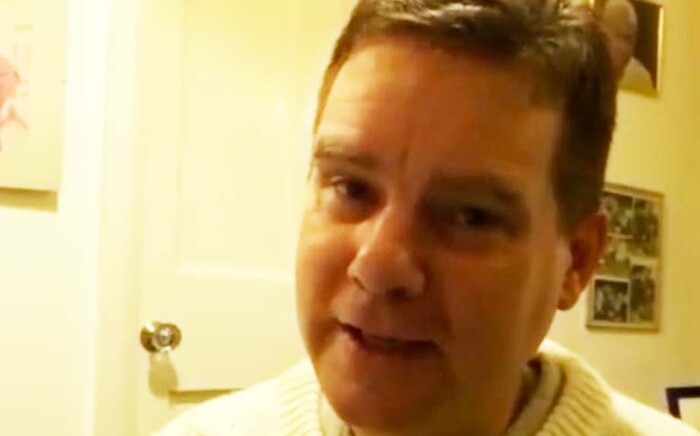
'I could find out myself, but it was so much easier asking your soul'
Mridanga Spencer Ipswich, United Kingdom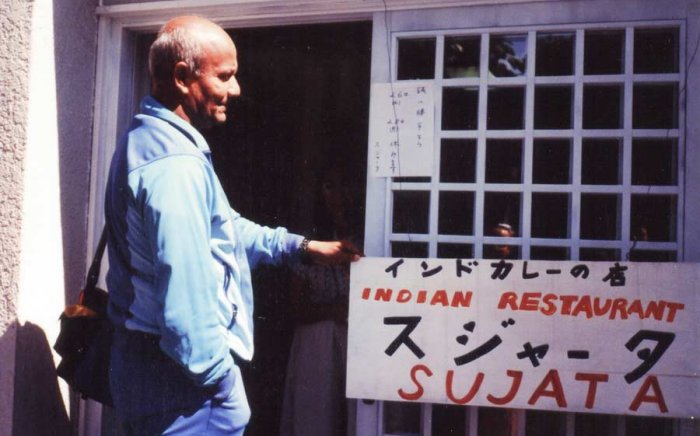
Regaining My Inner Joy
Sujata Muto Kyoto, Japan
The Swimming Relay
Toshala Elliott Auckland, New Zealand
An early spiritual experience
Ashrita Furman New York, United States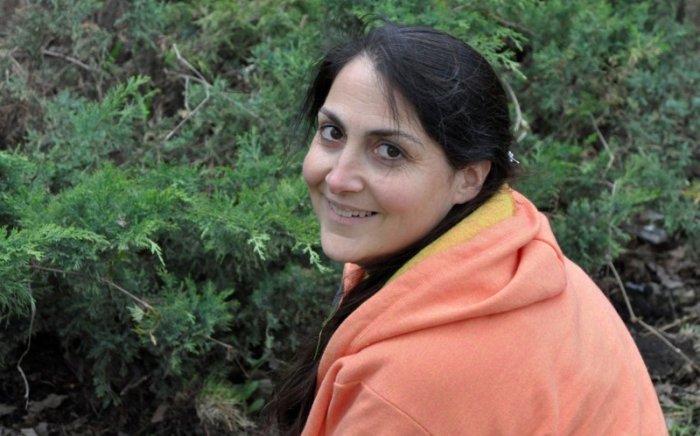
My inner calling
Purnakama Rajna Winnipeg, Canada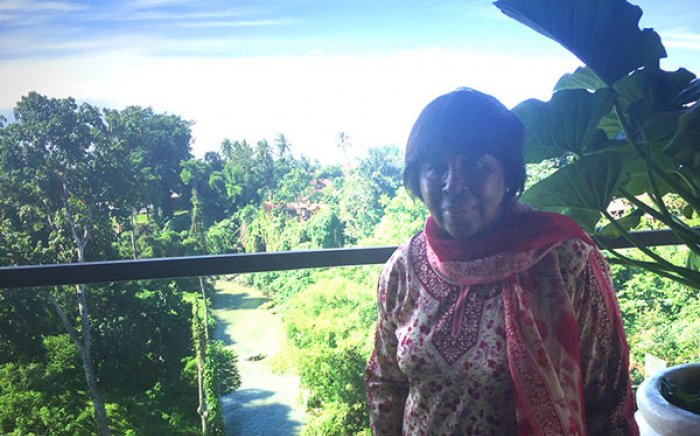
My life with Sri Chinmoy
Namrata Moses New York, United States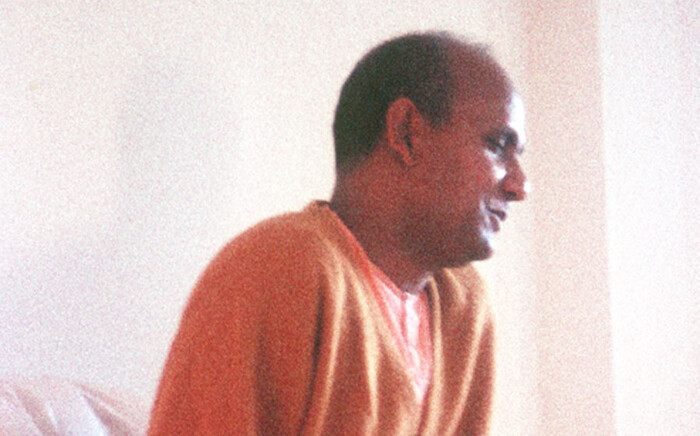
How my spiritual search led me to Sri Chinmoy
Vidura Groulx Montreal, Canada
10-Day Race: Staring into the Infinite
Patanga Cordeiro São Paulo, Brazil
The spiritual life is normal to me
Shankara Smith London, United Kingdom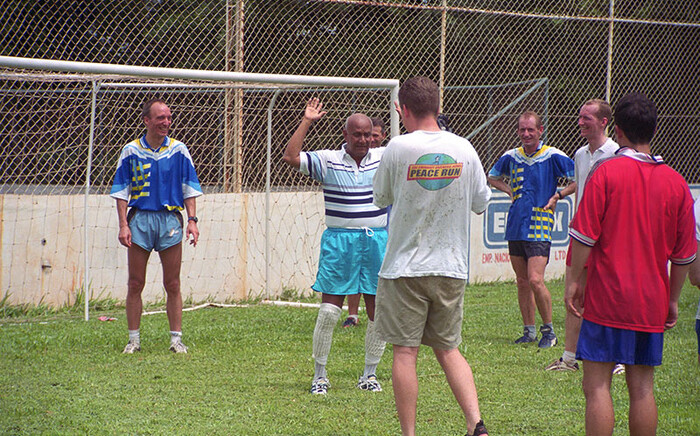
I see infinitely more than I say
Agraha Levine Seattle, United States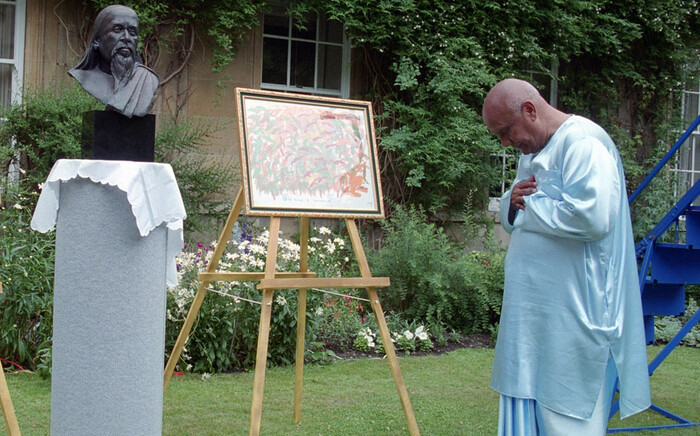
Our Guru becomes the perfect disciple
Devashishu Torpy London, United Kingdom
It does not matter which spoon you use
Brahmacharini Rebidoux St. John's, Canada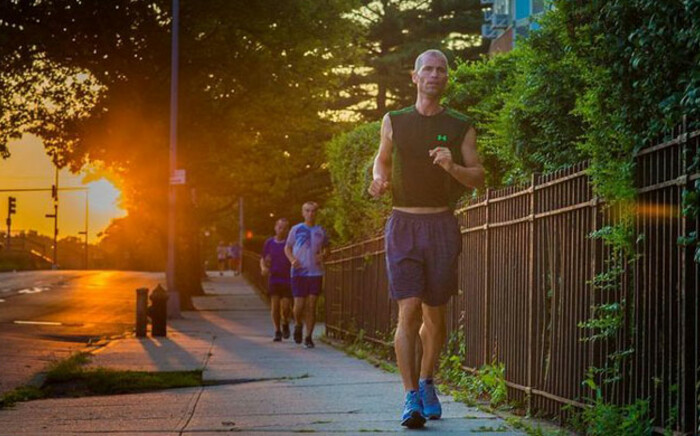
Why run 3100 miles?
Smarana Puntigam Vienna, AustriaSuggested videos
interviews with Sri Chinmoy's students
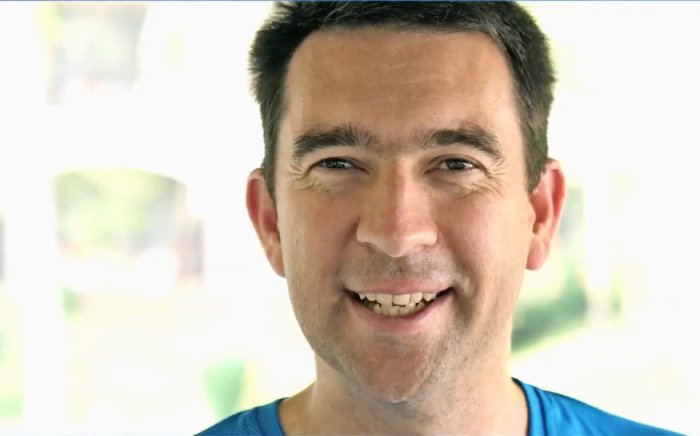
What meditation gave me that I was missing
Purnahuti Wagner Guatemala City, Guatemala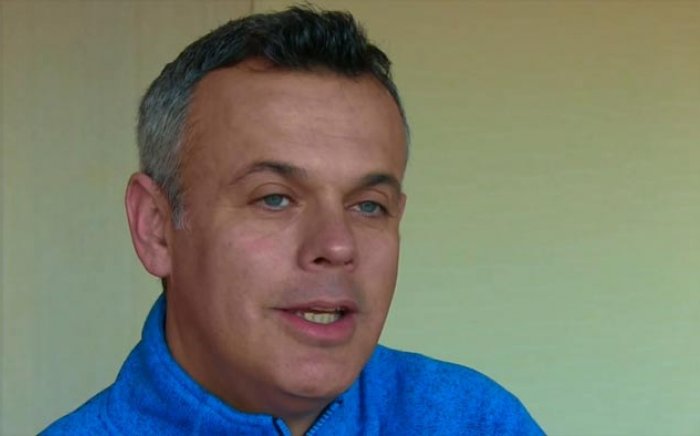
A childhood meeting with Sri Chinmoy
Devashishu Torpy London, United Kingdom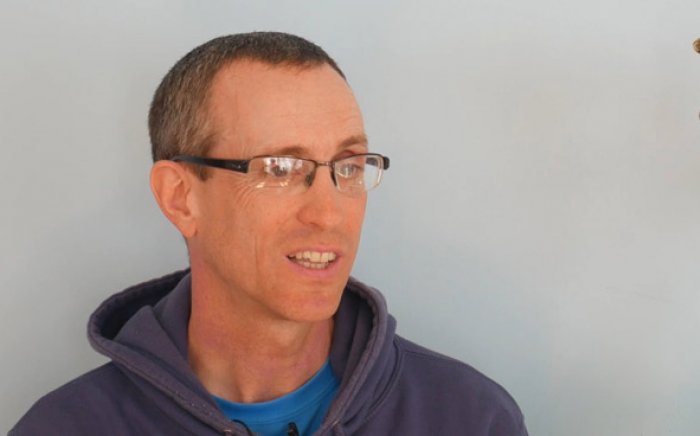
The value of meditation in a stressful job
Garga Chamberlain Bristol, United Kingdom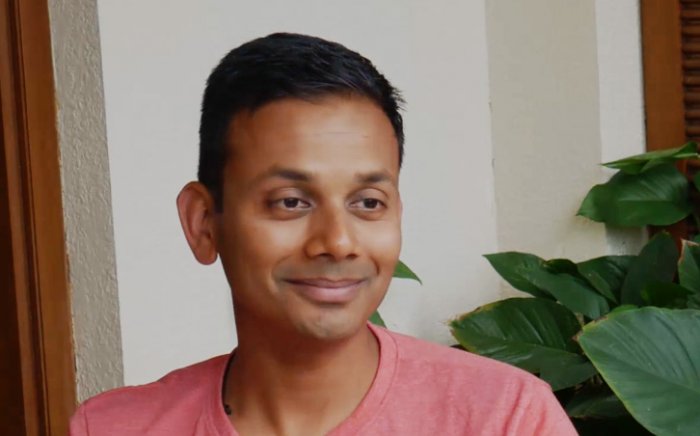
My daily spiritual practises
Muslim Badami Auckland, New Zealand
Spirituality - the most fascinating subject on earth
Laila Faerman New York, United States
Running a Six-Day Race
Ratuja Zub Minsk, Belarus
Progress-Pilgrimage: A 1200km run from Vienna to Paris
Shamita Achenbach-König Vienna, Austria
Except where explicitly stated otherwise, the contents of this site are licensed under a Creative Commons Attribution-NonCommercial-NoDerivs 3.0 Unported License. read more »
SriChinmoyCentre.org is a Vasudeva Server project.







